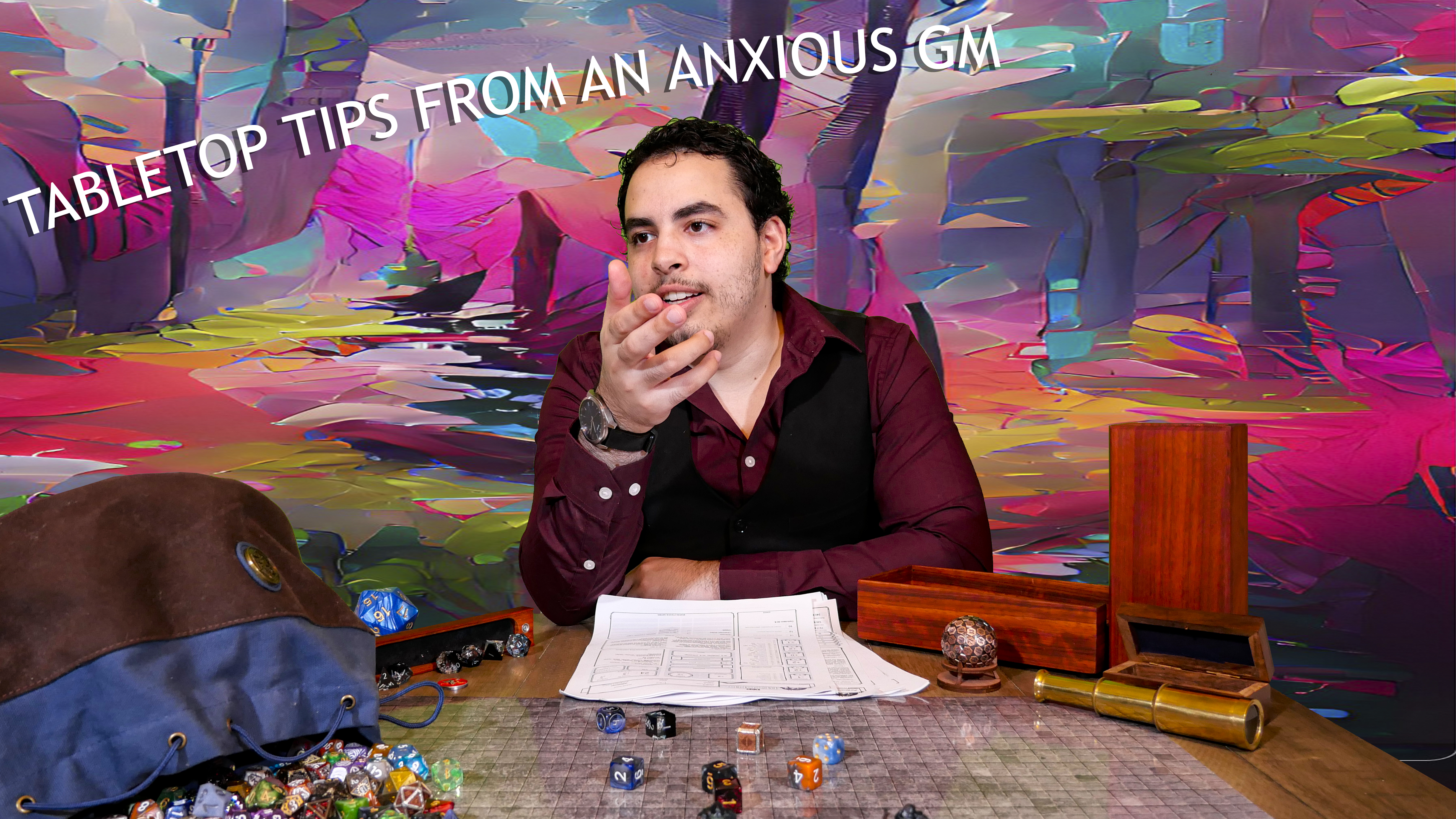How do I set expectations and limits? Tabletop tips from an anxious GM
Here’s how to set expectations and limits in D&D and any TTRPG games

Sign up to receive The Snapshot, a free special dispatch from Laptop Mag, in your inbox.
You are now subscribed
Your newsletter sign-up was successful
“How do I set expectations and limits?” is a question that I didn’t even think about answering until I was knee-deep in my main D&D campaign. Unfortunately, some of my players may have suffered because of it, so get ahead of the game and answer these questions ASAP if you haven’t already. As someone who struggles with anxiety and depression — a combo that is less than ideal for a journalist or a game master juggling seven different players in a six-hour Dungeons & Dragons game — I want to thoroughly untangle this issue with my experience.
In this week’s tentatively named column of Tabletop tips from an anxious GM (all of which can be found on our DND tips hub), I’ll be answering a question that was posed by one of my very own players. This player wanted to know how to best set expectations and limits at the table.
Your goal, whether you’re a new GM or Brennan Lee Mulligan levels of experienced, is to keep your players happy while finding your own happiness in running the game. Everyone at the table needs to be having fun. Here’s how to pave the road to setting expectations and limits.
- See our best DND tips right now
- Check out the best virtual tabletop software for your TTRPG games
TL;DR
Run a Session 0. Communicate with your players what the game is about, how it’ll play, what triggering issues may be discussed, and then compromise with them to shape it into something that’s fun for everyone. Don’t believe in unspoken rules. Speak about everything. Any triggers or limits that players have should be discussed now, so you can all come to a compromise as a group.
How to set expectations and limits — An in-depth look
Expectations and limits need to be discussed before the campaign even starts, and if you haven’t talked about it yet, talk about it now. If you don’t think there’s a problem, check anyway. Just because you’re having fun doesn’t mean that your players are — sometimes people are too anxious or nice to speak up.

Typically, expectations and limits are discussed during Session 0 — a session that takes place before the campaign begins and entails not only the aforementioned questions but character and campaign concepts as well as homebrew rules. Expectations and limits are related, but not directly tied to each other.
Let’s talk about expectations — what the player is expecting from the experience in your campaign. This could be as simple as deciding the type of gameplay players will experience, like dungeon crawling or roleplay-heavy scenarios. You want to make sure that the players understand what they’re getting before they start, and if they aren’t a fan, you can either compromise or decide that you two aren’t the right fit for each other (which is fine, too).
Sign up to receive The Snapshot, a free special dispatch from Laptop Mag, in your inbox.
Even small mechanical expectations should be discussed, especially when players start to design their characters, and maybe they want to do something outside the norm. However, expectations can be more nuanced, like how social issues are represented within your campaign. For example, is there racism? And if there is, what purpose does it serve? Is the story you want to tell about racial inequality? And if so, do your players want to experience that? And most importantly, what are their limits concerning racism?

When talking about limits, you want to suss out what’s okay and what’s not okay to include in your campaign to ensure players are comfortable. Let’s say your players want to fight social injustices in society. That’s great. But maybe some player doesn’t want to experience racism firsthand. There’s a difference between witnessing it and having it done against the player. There’s a clear line that needs to be drawn by you and your players. A common example of a limit, outside of xenophobia, is sexual assault. Some uncommon ones, like my players have requested, are eye and teeth gore.
Depending on your group, these expectations and limits can be resolved within a matter of minutes, but some may require more care. For example, if one player’s backstory involves troubling content that crosses another player’s limit, you might think you’re stuck between limiting the player's creativity and making another player comfortable. But no. Talk to both players privately about the issue and see if you can come to a compromise between them. Something like this happened between a GM and I. I played a character whose goal in life was to die because they are immortal. However, my GM informed me that suicide was a trigger for them, so we agreed that I wouldn’t take the roleplay too far concerning my character’s goal. You might think that my creative freedom was limited, but it just made me think more creatively about how to roleplay the character.

It’s important to be clear about these limits and expectations. You should go so far as to have a public document that all players can access to ensure that everyone is on the same page. The last thing you want is to have an uncomfortable subject spring up in the middle of a gaming session. But if it does — don’t be afraid to simply stop the game and talk about it with your players, because you don’t want them to sit uncomfortably for however many hours there are left in the session.
Don’t believe in unspoken rules. Speak about everything. Whether it’s within the world or done against another player character. Ask them whether they are comfortable with classism, gore, ableism, xenophobia, general discrimination, permanent injuries, permanent death, sexism, sexual violence, pedophilia, and more. You need to know these things, and every player needs to know what other players are comfortable with, especially because some of these events may be covered in their backstory. Communication is key to a healthy role-playing game.
I hope this helps GMs out there that may be struggling with similar issues. If you liked this column and want to see it continue, you can send me your own questions concerning mechanical, narrative, or social issues in the tabletop gaming space. You can email me at rami.tabari@futurenet.com or find me on Twitter.

Rami Tabari is the Reviews Editor for Laptop Mag. He reviews every shape and form of a laptop as well as all sorts of cool tech. You can find him sitting at his desk surrounded by a hoarder's dream of laptops, and when he navigates his way out to civilization, you can catch him watching really bad anime or playing some kind of painfully difficult game. He’s the best at every game and he just doesn’t lose. That’s why you’ll occasionally catch his byline attached to the latest Souls-like challenge.
